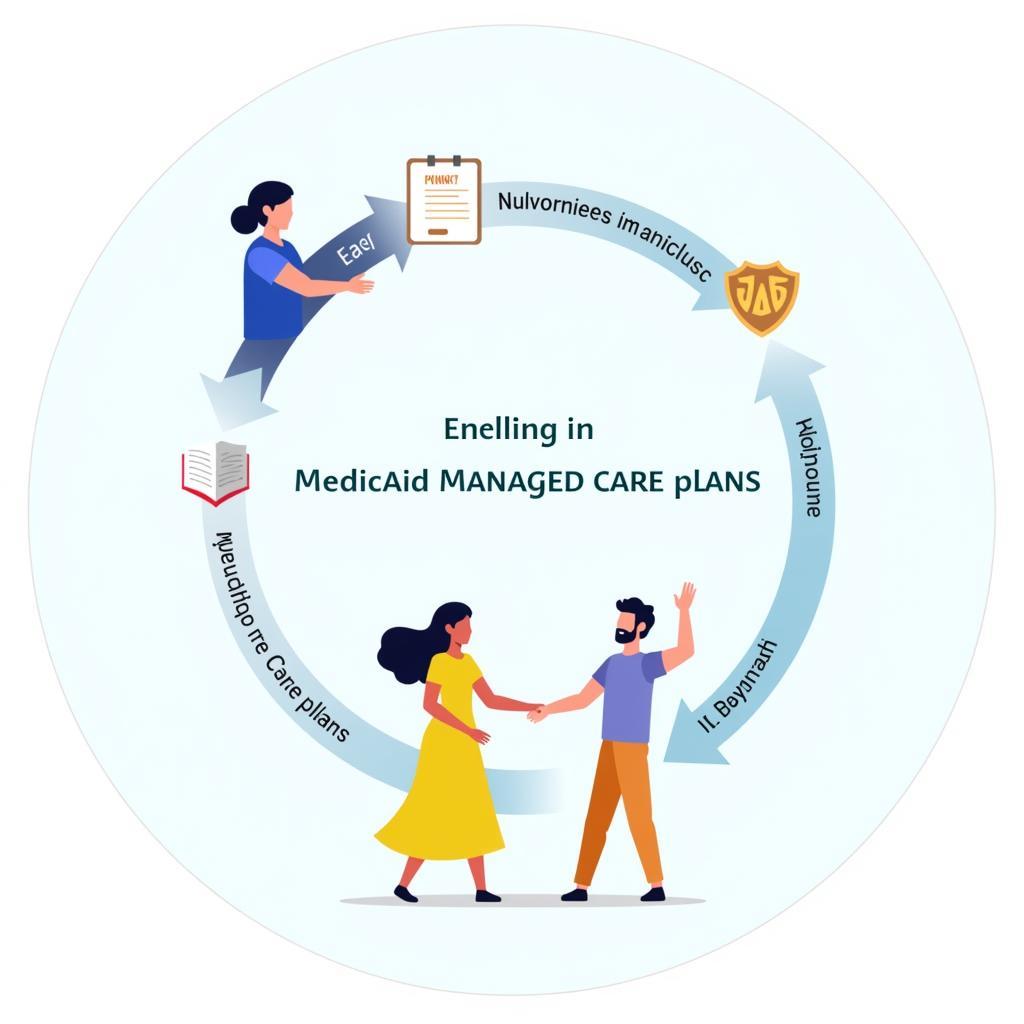Do Services Change When Medicaid Adopts Managed Care?
When Medicaid transitions to a managed care model, it’s natural to wonder about the potential impact on the services you rely on. The good news is that under federal law, your essential benefits are protected. However, there can be some changes in how you access those services and the range of options available to you.
 Medicaid managed care enrollment
Medicaid managed care enrollment
Understanding Medicaid Managed Care
Traditional Medicaid often operates on a fee-for-service basis, where the government reimburses providers for each service provided. In contrast, managed care seeks to streamline healthcare delivery and control costs by contracting with managed care organizations (MCOs).
These MCOs receive a fixed amount per enrollee from the state to coordinate your care. Think of it like a health plan with a network of providers. You’ll likely choose a primary care physician (PCP) who acts as your main point of contact and coordinates referrals to specialists or other services within the network.
What Stays the Same?
Rest assured, your essential health benefits under Medicaid are protected by law, even under managed care. These typically include:
- Inpatient and outpatient hospital services
- Physician visits
- Laboratory and X-ray services
- Early and periodic screening, diagnostic, and treatment (EPSDT) services for children
- Family planning services
- Home health care for those who qualify
Potential Changes to be Aware Of
While your essential benefits remain secure, you might encounter some changes:
- Choice of Providers: You’ll likely choose from a network of providers contracted with your MCO. Going out-of-network might require prior authorization or result in higher out-of-pocket costs.
- Care Coordination: Your PCP plays a central role in managing your care, coordinating referrals, and ensuring you receive appropriate services.
- Prior Authorizations: Some services might require pre-approval from your MCO before you can access them.
- Additional Benefits: MCOs often offer extra benefits beyond the required Medicaid services, such as dental, vision, or transportation assistance.
 Medicaid patient consulting with doctor
Medicaid patient consulting with doctor
Navigating the Transition
It’s important to stay informed about your options:
- Review Materials Carefully: When your state transitions to managed care, you’ll receive information about available MCOs, their provider networks, and covered services.
- Ask Questions: Don’t hesitate to contact your state’s Medicaid office or the MCOs directly if you have questions about the plans or the enrollment process.
“When states implement managed care effectively, it has the potential to improve care coordination and health outcomes for Medicaid beneficiaries,” notes Dr. Sarah Jones, a healthcare policy expert. “However, clear communication and robust beneficiary support are crucial during and after the transition.”
Making Informed Decisions
Ultimately, understanding how services might change under managed care empowers you to make informed decisions about your health. By actively engaging in the process and choosing an MCO that aligns with your needs, you can continue to access quality care and maximize your Medicaid benefits.

